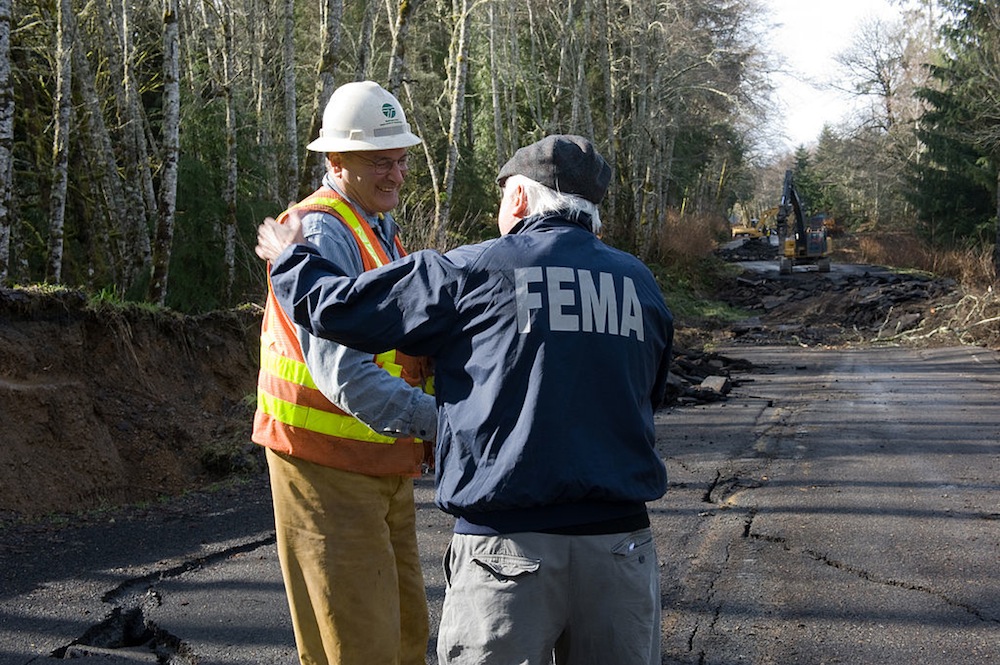An analysis of tidal levels and flood data by the news organization Reuters concludes that flooding has increased along the Eastern Seaboard over the past four decades.
During that period, the number of days a year that tidal waters reached or exceeded National Oceanic and Atmospheric Administration flood thresholds more than tripled in many places. The trend roughly tracks a global rise in sea levels, with an average rise of 8 inches in the past century, according to the 2014 National Climate Assessment.
At flood threshold, water begins pool on streets. If it rises beyond that point, it can close roads, damage property, and overwhelm drainage systems. Since 2001, water has reached flood levels an average of 20 days or more a year in Annapolis, Maryland; Wilmington, North Carolina; Washington, D.C.; Atlantic City, New Jersey; Sandy Hook, New Jersey; and Charleston, South Carolina. Before 1971, none of those locations averaged more than five days a year of flooding.
Reuters’s analysis was based on more than 25 million hourly tide-gauge readings from nearly 70 sites on the Atlantic, Gulf, and Pacific coasts and a comparison of that data to NOAA flood thresholds. Reuters then narrowed the analysis to 25 gauges with data spanning at least 50 years. The organization plans to publish a more in-depth examination of rising sea levels later this year.
(http://www.reuters.com/article/2014/07/10/us-usa-sealevel-flood-idUSKBN0FF20220140710)
Related Stories
| Aug 23, 2022
New Mass. climate and energy law allows local bans on fossil fuel-powered appliances
A sweeping Massachusetts climate and energy bill recently signed into law by Republican governor Charlie Baker allows local bans on fossil fuel-powered appliances.
| Aug 22, 2022
Gainesville, Fla., lawmakers moved to end single-family zoning
The Gainesville City Commission recently voted to advance zoning changes that would allow duplexes, triplexes, and quadplexes to be built on land currently zoned for single-family homes.
| Aug 16, 2022
DOE funds 18 projects developing tech to enable buildings to store carbon
The Department of Energy announced $39 million in awards for 18 projects that are developing technologies to transform buildings into net carbon storage structures.
| Aug 11, 2022
Report examines supposed conflict between good design and effective cost management
A report by the American Institute of Architects and the Associated General Contractors of America takes a look at the supposed conflict between good design and effective cost management, and why it causes friction between architects and contractors.
| Aug 10, 2022
U.S. needs more than four million new apartments by 2035
Roughly 4.3 million new apartments will be necessary by 2035 to meet rising demand, according to research from the National Multifamily Housing Council (NMHC) and National Apartment Association.
| Aug 9, 2022
Work-from-home trend could result in $500 billion of lost value in office real estate
Researchers find major changes in lease revenues, office occupancy, lease renewal rates.
Legislation | Aug 8, 2022
Inflation Reduction Act includes over $5 billion for low carbon procurement
The Inflation Reduction Act of 2022, recently passed by the U.S. Senate, sets aside over $5 billion for low carbon procurement in the built environment.
Legislation | Aug 5, 2022
D.C. City Council moves to require net-zero construction by 2026
The Washington, D.C. City Council unanimously passed legislation that would require all new buildings and substantial renovations in D.C. to be net-zero construction by 2026.
| Aug 4, 2022
Newer materials for green, resilient building complicate insurance underwriting
Insurers can’t look to years of testing on emerging technology to assess risk.
Codes and Standards | Aug 3, 2022
Some climate models underestimate risk of future floods
Commonly used climate models may be significantly underestimating the risk of floods this century, according to a new study by Yale researchers.

















